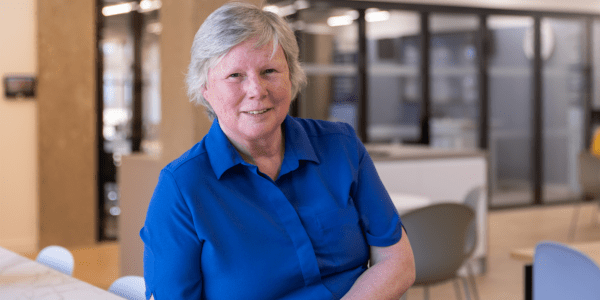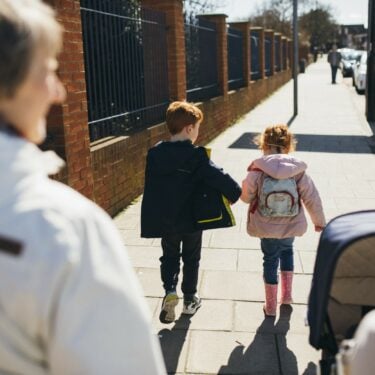The growth in lawyers working on a ‘no win, no fee’ basis has removed the financial barrier to pursuing a clinical negligence claim for many people, but a small number of serious cases may be falling through the funding gap, according to research published by the Nuffield Foundation.
Since the late 1990s, the cost of making a claim has been transferred from the government (via legal aid) to lawyers operating on conditional fee arrangements (or CFAs, commonly known as ‘no win, no fee’). These lawyers then recover costs from the NHS on cases that they win.
A team of academics from the Universities of Nottingham, Oxford, and Surrey analysed data relating to clinical negligence claims between 2001 and 2013. The most significant change is the growing proportion of claims brought by people who would not have qualified for legal aid in 2001 (and who could not afford to self-fund), but who are now able to bring claims because of the increased availability of ‘no win, no fee’ lawyers. For example the proportion of those in the middle income group who pursued claims following an adverse event increased from less than 4% in 2001 to 22% in 2013.
Conversely, those in the lowest income group are now less likely to make a claim following an adverse event (7% in 2013 compared to 15% in 2001), indicating that the withdrawal of legal aid may have reduced the propensity of those on lower incomes to make claims.
The researchers also identify a possible reluctance on the part of ‘no win, no fee’ lawyers to consider high risk, high value claims, such as those involving serious injury to children. Since the implementation of the Legal Aid, Sentencing and Punishment of Offenders Act 2012 (LASPO), incidents involving babies and children older than eight weeks are no longer eligible for legal aid, regardless of the damage sustained. If ‘no win, no fee’ lawyers do not take on such cases, then these children and their families may effectively be denied legal recourse, although the researchers point out that it is too soon to tell if this will indeed be the case.
These findings are published in a Nuffield Foundation briefing paper: Funding clinical negligence cases: access to justice at reasonable cost? Other key findings from the research include:
- The number of claims for clinical negligence fell between 2001 and 2009 (perhaps reflecting a reduction in the frequency of adverse events) but then rose between 2009 and 2013. In 2012/13, there were 10,129 new claims of clinical negligence against NHS bodies, up from 6,652 in 2009/10. A total of £1,259 million was paid in connection with clinical negligence claims in 2012/13 (£205 million of which was claimants’ legal costs), compared with £787 million in 2009/10. This increase in claim frequency over recent years correlates with the emergence of ‘no win, no fee’ funding as the predominant route for making claims.
- The proportion of successful claims increased from around 45% in 2001 to around 70% in 2009, possibly because ‘no win, no fee’ lawyers are more cautious about taking on risky claims than the Legal Services Commission (formerly responsible for administering legal aid). However, there are signs that this increase in the success rate had stopped (and may have been reversed) after 2009, corresponding to the period in which the frequency of claiming has been rising. This may reflect a less cautious approach to risk assessment on average as new, non-specialist law firms entered the clinical negligence market.
- Cases taken on by ‘no win, no fee’ lawyers on average paid lower levels of damages, incurred lower costs and were shorter in duration than legal aid cases, presumably reflecting the greater complexity of legally aided claims relating to children.
- Until April 2013 the NHS was liable for a ‘success fee’ on ‘no win, no fee cases’ to cover the costs of losing claims. This meant that legal costs represented a greater proportion of payments made by the NHS Litigation Authority in ‘no win, no fee’ cases than in cases funded by legal aid (53% compared to 36% in 2012/2013). However, since the implementation of LASPO in April 2013, the NHS is no longer responsible for paying success fees, and this element is now paid from the damages of successful claimants.
Professor Paul Fenn who led the project said: “There have been concerns that the shift to using ‘no win, no fee’ lawyers to fund the majority of clinical negligence claims might act as a barrier to justice because lawyers would be too cautious to take cases, or conversely that they would lead to a surge in ‘ambulance-chasing’ behaviour.
“Our research shows that neither of these things has happened, although we need to keep a close eye on high value claims relating to infants over eight weeks to ensure this group is not falling through the cracks. We also need to be aware of the recent trend towards higher claim frequencies and costs with a view to monitoring the impact of the LASPO reforms introduced in 2013.”
Teresa Williams, Director of Social Research and Policy at the Nuffield Foundation said: “This evidence provides a benchmark against which we can measure the longer term effects of legal aid reforms on clinical negligence litigation, but equally importantly it establishes an approach that could be used to assess the impact of these reforms in other areas of the law, something that is seriously lacking at the moment.”
NOTES
The research was undertaken by Paul Fenn, Emeritus Professor at Nottingham University Business School and Senior Visiting Fellow at the Health Economics Research Centre, University of Oxford; Alastair Gray, Professor of Health Economics and Director of the Nuffield Department of Population Health at the University of Oxford; Neil Rickman, Professor of Economics at the University of Surrey; and Dev Vencappa; Lecturer in Industrial Economics at Nottingham University Business School. The project was funded by the Nuffield Foundation.
The team used three datasets:
- The Compensation Recovery Unit (CRU) dataset, which records information on all claims for compensation relating to personal injury in England and Wales.
- A survey designed and administered by Ipsos MORI to provide data on the incidence of adverse events relating to healthcare, and whether a legal claim was pursued.
- The NHS Litigation Authority (NHSLA) dataset, consisting of all claims made against NHS acute hospital trusts and settled between April 2008 and April 2013, including those outstanding at April 1st 2013.

































